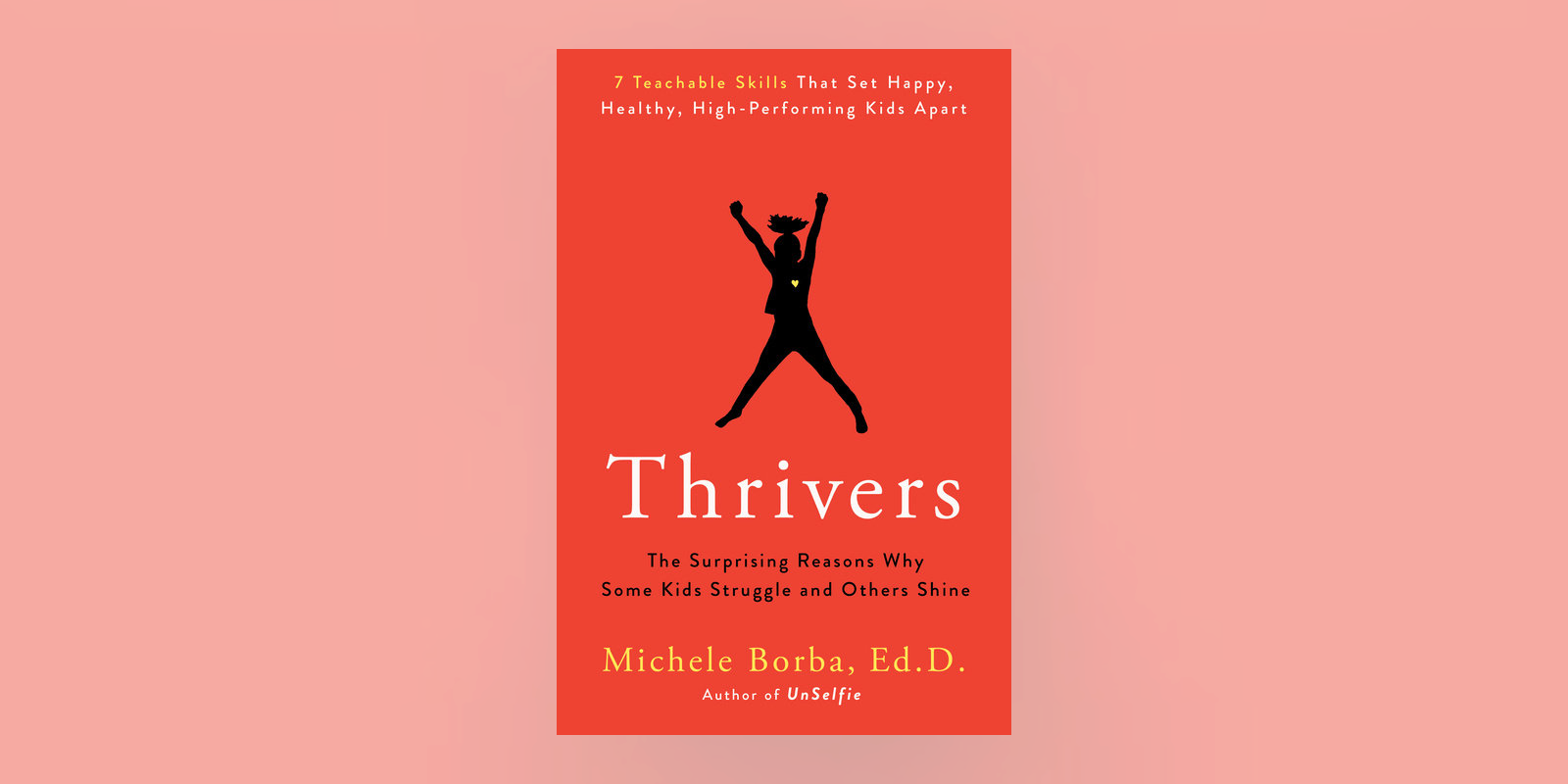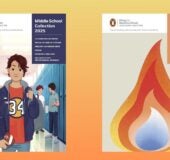 “Why do some kids thrive while others strive?”
“Why do some kids thrive while others strive?”
My quest to find that answer began as a college student when I first learned of my own father’s childhood struggles. His parents were illiterate and destitute. His father died when he was two, and Dad was placed in an orphanage. Yet, despite his hardships, Dad graduated from Stanford, raised a loving family, became a school superintendent, and lived a meaningful one hundred years. I spent the next decades trying to find out how he was able to thrive.
I received my doctorate in educational psychology and worked with children with severe learning disabilities as well as those who endured trauma and genocide—yet some also overcame. I worked on Army bases with military families, parents with foster youth, and with counselors and educators of sexually-abused and trafficked children. Each experience bolstered my views that resilience is not locked into DNA, GPA, or zip code. Thrivers are made not born thrivers are made, not born. But what have those children learned that increases their potential to thrive and bounce back from trauma?
I began to work with teens and noticed the decline in youth mental health that experts were reporting. American teens were suffering from higher rates of depression and anxiety than their predecessors—and especially those from upper-middle-class families. I interviewed dozens of teens who confirmed that they felt loved, but empty. And I delivered a speech to 2500 college counselors—who shared the same concerns. The new college breed they were teaching was smart but failing to launch and handle life.
I dug deeper, combed science, interviewed experts and identified strengths proven to boost resilience and mental strength. Part one shows you how to help children develop strengths to develop a caring heart:
- Self-Confidence so children can recognize their strengths, accept their weaknesses and apply that knowledge to help them find the best path to life success.
- Empathy so children can recognize and understand the feelings and needs of themselves and others and develop health relationships.
Part Two is all about helping children develop qualities of strong minds.
- Self-Control will help children learn to think straight, manage strong unhealthy emotions and reduce personal distress so they can cope with whatever comes their way.
- Integrity so children will adopt ethical values that help them develop solid moral codes and guide their lives and relations with others.
- Curiosity will help children be open to possibilities, accept new information, make discoveries, and stir creativity so they are inspired to follow their dreams.
Part Three provides ways to help children cultivate a determined will.
- Perseverance emboldens children to keep on when everything else makes it easier to give up and realize that they can handle mistakes and learn from failure to triumph with their goals.
- Optimism gives children the tools to handle challenges with more positive outlooks, thwart depression, be more hopeful about their world and believe that their lives are meaningful
I also discovered that while each individual strength is important, their impact dramatically increases when strengths are combined: Confidence + Perseverance; Curiosity + Self-Control; Integrity + Empathy + Optimism. That “Multiplier Effect”—the combined power of character strengths—is why some kids struggle while others thrive. But our cognitive-hype culture was convinced that GPA and test-scores were the surer path to happiness and success and was failing to teach those abilities. And so, our children were lacking critical competencies that would help them bounce back and handle life.
Next, I flew the world to find unique ways educators were teaching those strengths: a chess club at a Beirut refugee camp, an Exhibition Project for fifth graders in Tampa, the M.I.T. multimedia lab in Cambridge, a teen camp in Appalachia, a Tinkering lab in a Los Angeles middle school. Nurturing children’s thriving potentials was not a “one-size fits all” approach. I realized that each strategy was meaningful and addressed each child’s needs, but it was always delivered by a caring adult. I also recognized that children who thrive have two things in common: caring adult champions and protective buffers they’ve learned that help them cope. I was finally ready to compile my answer in one definitive resource for parents and teachers. And the book was published the month that the pandemic hit.
Thrivers: The Surprising Reasons Why Some Kids Struggle and Others Shine offers a proven guide to build children’s inner reserve and buffer adversity. Each chapter addresses one of the seven crucial thriver strengths, research substantiating the need, suggestions of children’s books and novels. Each chapter is also filled with evidence-backed strategies and skills we can teach children from preschool through high school. I share the latest scientific findings from top neuroscientists, psychologists, Olympic athletes, MIT scholars as well as Navy SEALs. And throughout I’ll provide stories of real children who faced enormous obstacles like racism, attention deficits, abuse, and physical challenges but thrived because adults helped them develop these strengths.
The fact is our world is changing, and so must our educational and parenting practices. To thrive in a technologically driven, fear-based, rapidly changing twenty-first century world, kids need more than grades, scores and trophies: they need strength of heart, mind and will. The seven essential Character Strengths build strong inner foundations so students can handle life’s inevitable huffs and puffs, lead successful, fulfilled lives and never run on empty.
Our moral obligation is to equip children with the skills, abilities and mindsets to handle an unpredictable future so they can adapt, cope with whatever comes their way and thrive. It is my hope that Thrivers plays a small role in helping us raise a stronger generation. Doing so, may be our greatest legacy because we will be able to give this Pandemic Generation the protective factors to face inevitable hardships and be more likely to live meaningful lives without us. And that must be our ultimate end goal.
Learn more about Michele Borba, Ed.D. and read teacher testimonials here
“Teachers were unanimous in considering your presentation as the most timely, useful, and motivating they had experienced during their teaching careers.”—Superintendent, Oak Hill United School Corporation
Michele Borba, Ed.D., is the author of UnSelfie: Why Empatheic Kids Succeed in Our All-About Me World, and is an internationally renowned educational psychologist and an expert in parenting, bullying, and character development. She is a regular NBC contributor who appears regularly on Today and has been featured as an expert on Dateline, The View, Dr. Phil, NBC Nightly News, Fox & Friends, Dr. Oz, and The Early Show, among many others. She lives in Palm Springs, California, with her husband, and is the mother of three grown sons.





